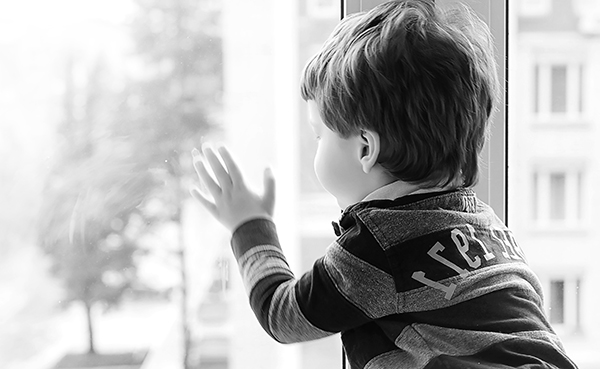Some conditions have a predictable healing pattern. Autism is not one of them.
There are plenty of life-long conditions that can affect people their entire lives – Downs Syndrome, Spina Bifida, CF, and many more – but I am here today to talk about Autism. Or as we sometimes call it Autism Plus.
Our son did not have struggles until school started. His independent learning style just wasn’t looked on as a positive in the classroom setting. We were only bothered by his “not fitting in” when he was left behind on the playground and at the awkward birthday parties. In second grade he was flagged for intervention and the school meetings began. That is another story for another time.
3 strikes but still in the game.
Sometime around the age of 9, he was diagnosed with PDD-NOS – which was the clinical diagnosis at the time when your child didn’t quite tick all the boxes for full-blown autism (what I would call non-verbal). NOS stands for Not Otherwise Specified. Not very specific, unfortunately. Our son was not really aware of his diagnosis, and although I feared labeling him, we went along with the diagnosis so we could get him any extra help that was offered by the school district.
By 6th grade, our son was diagnosed with Type 1 diabetes.
Two years later he was diagnosed Celiac (no gluten allowed).
By this time our son knew he was not fitting in – and not just because of the Diabetes, although that was a HUGE challenge for a kid his age. He was still in a regular classroom, and in addition to his IEP, he had a 504 for Diabetes allowances – so he could leave class at any time if he was feeling low blood sugar, needed a snack, etc.
These issues are for life, and it has been our job to walk with our son and teach him to care about caring for himself. As he grows into an adult, he needs to know this stuff, we won’t be around forever. There has been a lot of therapy over the years to help him with depression and learning to cope with his issues in healthy ways. This therapy really helped me as well since I sat in most of the time. Seeing him struggle with diabetes, and perseverate over insulin shots, finger sticks and a controlled diet was very difficult and I felt incredible guilt eating foods he couldn’t eat – but in reality, he had to learn to make choices for himself. I was not going to be a helicopter mom — I had to think about his future.
Why my child?
Most life-long special-needs parents can all relate. We sacrifice our own physical and mental wellness and put our kids first. It can be lonely as a parent of a special needs child. Even with all the inclusion going on today, there may always be lingering feelings of guilt that you can never seem to do enough – and it is exhausting.
No matter what we can’t give up on our kids. Wouldn’t it be great to say to your child “We just have to get through this hard part and you will be healed” or, to have a doctor declare — ”With just a few years of therapy life will be easier.” No, we have to put on a positive, brave face and keep praying that everything will be ok. There is a story (for autistic parents) about a last-minute change of vacation plans – and how just because you didn’t plan for the journey, it can still be a great vacation – it will just be different.
Read this short, inspiring story by Emily Perl Kingsley
A Life Changing Path
We ended up with a baby that just happened to have autism. That detour was set in place from the time our child was conceived — we just wouldn’t know for almost a decade. I would not have chosen this path – there have been struggles, setbacks, and luckily some triumphs to offset the challenges along the way. I have learned and experienced many things I might have missed out on without our unique child.
We had decided not long after our son was born I would stay home, and try to start a business from home. My only regret was that we could not afford better health insurance. It was so stressful navigating the medi-cal health care that seemed to bump us continually to new providers where we had to tell our story all over again every time. That did not help my son’s depression! I was always tired and mostly grumpy – moving from therapist to therapist, researching medications, attending school functions, and parenting classes that the school recommended (because we wouldn’t want to seem un-cooperative!). UGG too much!! Where I struggled the most was seeing the light at the end of the tunnel. There was always another therapy appointment or school meeting – and some years we made little progress. I started becoming deeply depressed as I was putting out so much energy and not getting much back in return.
We cannot change anyone, we can only change ourselves.
I used to be a little jealous of those parents of “normal kids”. Some of them just couldn’t understand what our boy’s life was like and how hard it was for us to see him teased and left behind on the playground. I could feel them talking behind my back sometimes about his outbursts – there was no way they would ever get it. It is a very depressing viewpoint – always looking for greener pastures, and not productive for healthy family life. Years of therapy helped me look to change what I could, and cope with the rest.
I believe we are through the hardest years, and I never take any peaceful day for granted. Choosing to help my son accentuate his positives has helped build his self-esteem, and our appreciation for the smart and level-headed man we have raised. He may still be living at home, and progress to independence may be at a snail’s pace – but we will do everything we can to help him learn to live a full life with his life-long conditions.
How has a life-long condition shaped your life? How have you persevered and overcome a debilitating condition? Let me know in the comments!



